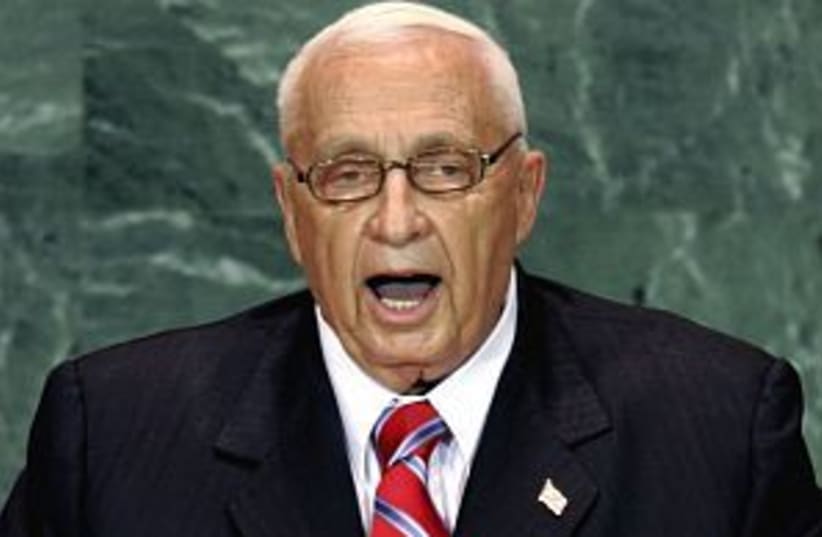| More about: | Israel, Shimon Peres, Ariel Sharon, Palestinian National Authority |
PM: Israel to control its own security
Sharon touches on critical issues at yearly editors' committee in Tel Aviv.


| More about: | Israel, Shimon Peres, Ariel Sharon, Palestinian National Authority |